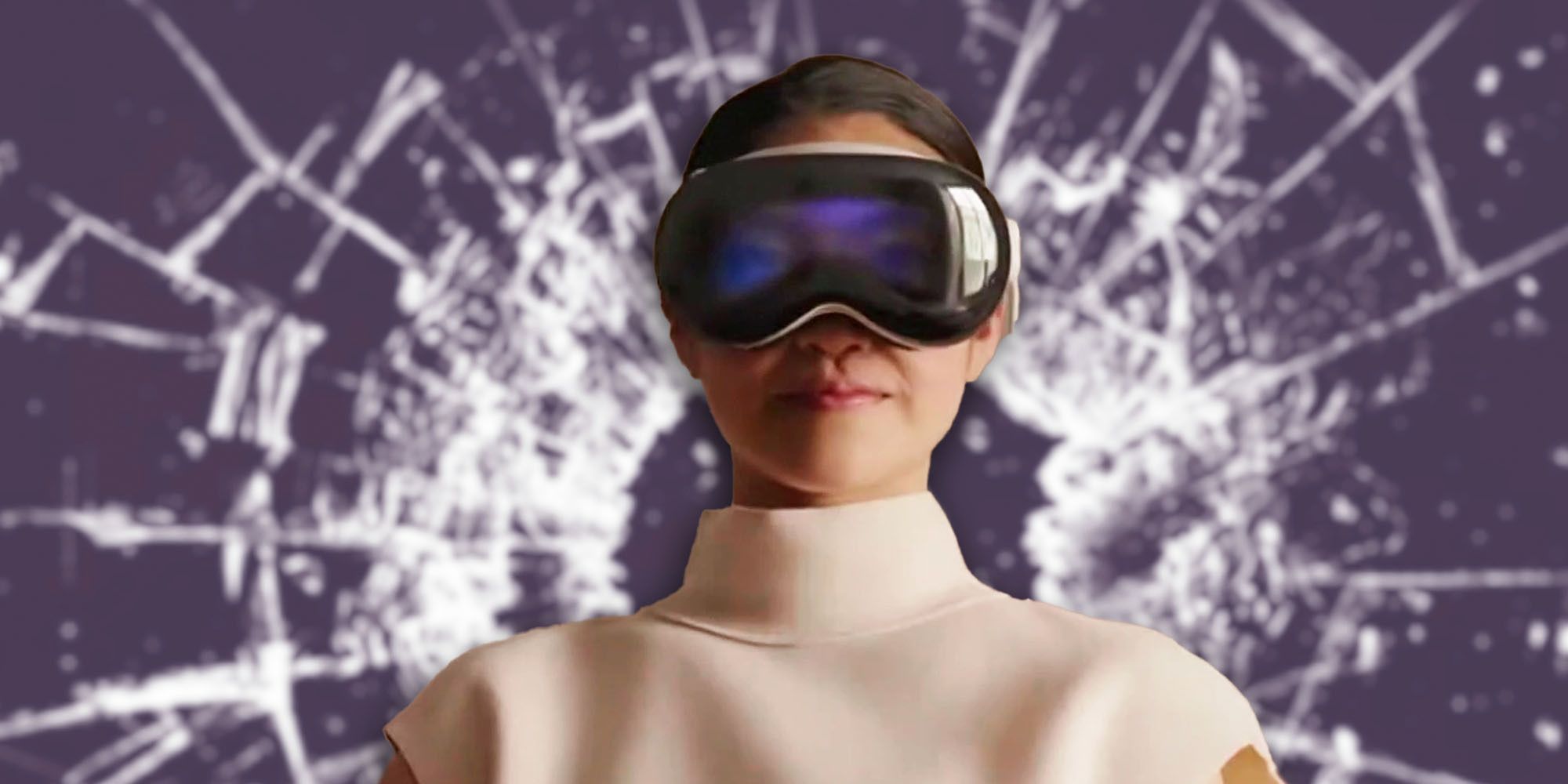Some of you will be too young to remember when Apple was the new kid on the block in the early '00s. Granted, Apple dates back to the '80s and always had a lot of money, so it wasn't the scrappiest of underdogs, but when the iPod dropped and those iconic black silhouettes danced against those flashing colourful backgrounds, it felt like the future had arrived. You could have 1,000 songs in the palm of your hand! One whole thousand! It feels silly in the modern world of streaming and everything at the tips of our fingers, but back then I didn't even know there were 1,000 songs in the world. Apple used to make you feel like you were part of the future, but recently it has fallen behind. Its latest, highly expensive Apple Vision Pro headset, feels like a make or break moment.
Obviously, this sense of the future was a very obvious corporate strategy from Apple. It wasn't magic or wonder bringing us these new devices, it was money. And they existed primarily to make more money than they cost. The world was also a lot smaller back then, in ways it's difficult to quantify. The internet still existed, but we weren't as attached to it. We lived primarily in the real, physical world, and anything virtual was significant and amazing. These days we’re online too much, so inventions that ask us to spend more time online are regarded with caution. In my youth I tied my identity to emergent technology, where today I am an elderly, cynical luddite in the face of TikTok trends I don't understand. Mostly though, this feeling has gone because Apple just isn't good at this sort of thing anymore.
Apple recently revealed that the Apple Vision Pro will cost $3499 - a figure even the Apple fans who for some reason queued up to watch these products revealed live could not hide their shock at. It looks like a mix between a VR headset and Google Glass, while somehow being a little dorkier than both, and that's already a high bar.
The things the headset can do are interesting, but the reliable ones are not groundbreaking. Much was made of the device's eye tracking, but PS VR2 has that and retails at $500 - a price that is already criticised for being too high. It merges AR and VR with a dial, but all that has been shown off thus far is that it's compatible with internet browsing and Apple apps, as well as scanning yourself into an avatar - the same thing various metaverse advocates have droned on about for over a year, with little to show other than huge losses for Facebook. Some of the more extreme features have promise, but many will be skeptical.
Apple was the first to get its feet under the table, and was at the forefront of the industry for a while. Other mp3 players arrived, but the iPod was still king. Then the iPod Touch and the iPod Nano added a sense of variety to Apple's catalogue. Other smartphones followed the iPhone, but there was a sense that they were doing precisely that - following. The iPad was scrutinised at launch, not least because of a silly name, but soon after tablets were everywhere. Just like the iPod and iPhone before it, the iPad became ubiquitous with the tablet concept. Then Steve Jobs died.
I'm reluctant to put any company's success down to just one person, especially one so large and multifaceted as Apple, but there does feel like a distinct change in direction following Jobs' passing. While the Apple Watch, another trendsetter, has arrived since then, the sense of magic and wonder has gone. It never really existed, but Apple made us feel it anyway. But we don't feel it anymore. Apple used to have the perfect sense of what the public either wanted or needed. But in recent years it has stumbled, now following trends rather than setting them, and staying within the safety of gradually improving its iPhones and iPads with new features. The Apple Vision Pro feels emblematic of Apple in the modern era - overpriced, overpromising, and under the influence of other brands.
I'm very vocal that being a fan of a brand (be they Apple or Samsung or PlayStation or Xbox) is a misguided approach to our capitalist society and makes it easier for corporations to exploit you. So I'm not a 'fan' of Apple. I'm not 'disappointed' or 'let down' and the company is not what it used to be. But this does feel like a turning point. Those extreme features include reliving video footage through a 180 degree physical plane, while Apple and Disney will also be producing content that can be experienced in this way. You can also see through it into the real world when not in full VR mode, project images, and watch movies with a 4K display, a resolution unheard of for a headset.
If it pulls all this off, it's easy to see why it costs so much money. It's harder, however, to see many people paying it in these financially turbulent times. It could be the key to the future, just as the iPod, iPhone, and iPad were before it. Or it could be an expensive money pit that finds the impossible dreams it paints for us to be impossible for itself to achieve, and becomes another Google Glass. Unfortunately for everyone, especially the people who buy it on day one, the VR market tells us the latter is far more likely.




